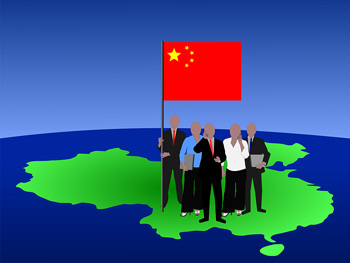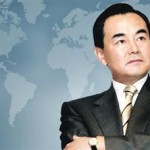Business intelligence: Wholly owned foreign enterprise in China
 Starting a wholly owned foreign enterprise in China
Starting a wholly owned foreign enterprise in China
Due to the recent focus on the emerging economies in Asia, international firms around the world have been pursuing entry into the vibrant and dynamic markets of the continent. China particularly has seen record numbers of foreign companies wanting to establish operations in the country and the most popular vehicle of expansion has been through establishing wholly owned foreign enterprises.
The Whole Owned Foreign Enterprise (WFOE) has been a favorite for foreign companies in China due to multiple comfort factors inherent in its structure such as the ability for the firm to be 100% owned and controlled without needing to join with a Chinese partner. 100% ownership allows international firms to enjoy higher security and intellectual property rights and repatriate profits without as many legal issues compared to other entities.
What types of WFOE to establish
There are three types of WFOEs that may be set up in China: manufacturing, processing, and assembly WFOEs, foreign-invested commercial enterprises and service WFOEs. It is worth the time and the effort to do research into each type to ensure that a business falls firmly into the category stated in your articles of association. Roaming outside the parameters of your business scope may end up being costly in terms of lost revenue and in some cases, even closure of business activities by the authorities.
Manufacturing, processing, and assembly WFOEs
These companies are involved in all sorts of industries that process raw materials or secondary materials to produce other goods and services for import, export and domestic wholesale.
Foreign-invested commercial enterprises
These firms are not allowed to engage in manufacturing activities such as conversion of materials from one form to another. Instead they are act as agents, retail and wholesale domestically, source domestically or import and export all over China.
Service WFOEs
Firms in this bracket are expertise and service providers and prohibited from handling physical goods. Their main business focus will often be on consultation.
It should be noted that there are a range of industries in which foreign firms are not allowed to participate because of the government sensitivity to the industries. These industries are perceived as harmful to national interest in the hands of foreign entities, such as mass media and defense. Other prohibited industries include any that can be considered to be harmful to the environment or Chinese technological advancement.
Organizing a WFOE: Key Considerations
Business scope: It is vital for a company’s business scope that within its articles of association, it accurately defines exactly what the company is doing, as it will not be allowed to operate outside the parameters it sets for itself. Your business scope must also be approved by the authorities.
Capital requirement: The capital requirement will differ depending on the location of the WFOE as well as its industry. As a guide, multiple shareholder companies generally need about RMB 30000 to set up business in China, whereas single-shareholder companies need about RMB 100000. Working capital needs, should not be underestimated.
Feasibility study report: The feasibility study follows a standard format and is included in a company’s application documents. It is reviewed by the Ministry of Commerce to assess how much thought has been put in a foreign direct investment decision. Although the report is non-binding, it is in a company’s best interest to be thorough in this regard. Included in this study will be a company’s operating budget as well as its key industry focus.
Environmental protection valuation report: This report is issued by the Environmental Protection Bureau and is meant to ensure that a company’s business activities (particularly manufacturing) are not detrimental to the environment. The information required includes: the raw materials, machinery and equipment used as well as the consumption and disposal of toxic elements of production.
Key articles of association: These are the operating rules of the company. They are not a mere formality and it is imperative that they are properly structured. These articles include:
- Business scope article: Which expresses the limits of a company’s business activities in China.
- Production scale article: This can help a company draft an exit strategy because it could include links between production and profitability to scales that will require for the business to be liquidated if deemed unacceptable.
- Liquidation audit article: A board of director’s resolution approves liquidation and termination in conjunction with the production scale article included in the articles of association.
- Total investment article: Clarity is important here because the relationship between your registered capital and your total investment capital can affect debt financing and the ability to obtain parent company loans.
- Profits repatriation article: This gives the parent company the right to bill the WFOE for services, royalties, and R&D costs. And makes it easier to overlay expenses and send money out as an invoice payment.
- Trade union article: The Chinese staff has the right to form a trade union and elect a representative. This document will assist you to control the union’s budget and influence its expenditure.
Once a company’s key articles have been carefully revised, they will need to be translated into Mandarin and this version of your articles of association will legally take precedence over the English version, so companies must ensure that they employ a professional interpreter to complete the task.
Taxes and Auditing
WFOEs need to be familiar with the taxes their company will be required to pay. Tax and auditing issues can often be complicated for foreign entities to manage on their own, therefore it is strongly advised that you outsource the function to a local firm. Taxes required from WFOEs include enterprise income tax, value-added tax, business tax, consumption tax, withholding tax.
All WFOEs are required to be audited annually and included will be year end financial statements that include balance sheets, income statements and cash flow statements – in accordance with the Chinese General Accounting and Audit Practice. Again, these are best outsourced to a local firm experienced in this function.
It is highly advisable to find a business consulting company like Daxue Consultants to assist your company in setting-up a wholly foreign owned enterprise in China to help you avoid costly mistakes.
Sources:
- On Linkedin
- Market Intelligence
- China Law Blog
- Book on WFOE
- China Market Entry Strategy
Picture Source: WFOE














